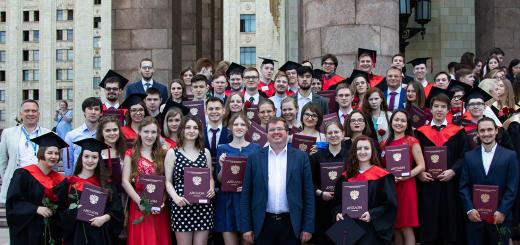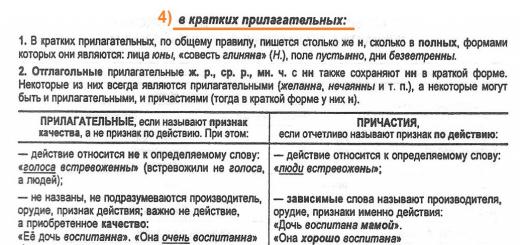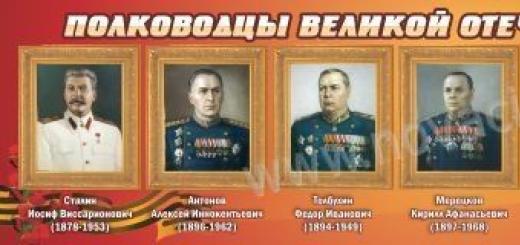Recently, the Middle East has become increasingly important to the international community. Diplomatic service, translation, education, finance, industry, journalism - these and many other areas cannot do without professional translation. Therefore, first of all, knowledge of Arabic provides great employment opportunities for their native speaker: today there are not many good translators in the world, who at the same time are very needed.
Advantage two

Knowledge of Arabic will help during tourist trips to the countries of the Middle East. Today there are more than 20 countries in the world where this language is the main one. Tourist trips and trips to attractions for Arabic speakers are more informative and interesting, since they understand well what the guide is talking about, can clarify what they did not understand, and talk with local residents. In addition, you can:
- Find your own way to an object of interest.
- Travel freely around the country.
- Buy or sell goods.
- Find a job and stay in one of the Arab countries for a certain period of time or permanently.
Advantage three

Cooperation is one of the important aspects of the life of a successful business person related to the trade market. The Middle East region, where the population is constantly increasing, is a huge market where services and goods can be imported. In addition, the region itself, with a GDP level exceeding $600 billion, has much to offer other countries.
Accordingly, to establish trade relations it is impossible to do without a negotiation process. But, at the same time, without knowing the language, a business person is completely dependent on the translator, or rather, on his professionalism, honesty, and diligence. After all, if you wish, you can mess up any agreements and quarrel even with long-term cooperation partners, which competitors can certainly take advantage of. So is it worth depending on others?
Moreover, knowledge of the language will show a representative of the Arab world that he is treated with respect, which will certainly affect the strengthening of business, and perhaps even friendly relations. Business agreements, participation in personal meetings, conferences, seminars - all this is much more fruitful, successful and interesting for those who not only understand Arabic, but speak it well, know what and how to say to a representative of the Arab world.
Advantage four

Financial prospects are one of the important aspects for representatives of the younger generation. Not long ago the US government made an announcement. It says that Arabic is a strategically important language. In accordance with the National Language Initiative, Americans who decide to study Arabic receive scholarships and are given every opportunity to study. For this purpose, courses are being opened, both at entry level and for those who want to know the language perfectly.
The program also includes:
- Study abroad.
- Application of intensive teaching methods.
- Teacher exchange.
- Help with professional development.
Fifth advantage

The rich cultural heritage that the Arab world possesses has always been of interest to representatives of various professions. Historians, archaeologists, writers, and art historians have always valued and value the unique cultural traditions of the Arab world, its past and present, and study all aspects of Arab life with great interest. Since the Western community does not, and did not, influence this area, even today you can get acquainted with elements of the life of residents of Middle Eastern countries that have hardly changed over the past millennia. But much remains inaccessible or misunderstood precisely because of ignorance or poor command of the Arabic language.
The author's method of quickly learning Arabic.Tested on children.
If someone can read the Koran after this, the author is not to blame.
He had other goals, but - Good luck!
Different people have different ways of thinking, which is why, for example, physicists and lyricists need to be taught foreign languages in completely different ways. However, in all existing foreign language textbooks, one can feel the same and “shady” German approach: unnecessary thoroughness, an abundance of unnecessary, stupid, unstructured information at the start, tediousness that kills mood and motivation after 5 pages and puts you to sleep after ten.
That is, it is often not the student’s fault, but rather the teaching system that “fucks up.”
Roughly speaking, the teacher is to blame.
It’s as if someone put a filter on the “unworthy” foreign language.
And this is how the “cut-off” is carried out...
But why did they write a book for this, why was it called a “textbook”
and why were you sold “crap” that is of little use for learning??
Some books should be called - not textbooks, but "turnstiles",
like, if you made it through, you move on, if you didn’t make it through, sit, smoke, and smoke bamboo...
Existing textbooks are poorly designed for the thinking of a normal Russian person.
modern, not "outdated" version. When you are told obvious platitudes that have clearly been rewritten over the last 100 years, you get the feeling that you have “gotten it”... thoughts that you turned out to be smarter than your teacher, and the teacher is “acting out” - really interfere with learning.
Perhaps philologists wrote textbooks - for people with a different background,
Perhaps the “background” of the average student has grown over 100 years
or the methods are outdated.
It may also be that people who don’t know anything useful except languages increase the value of their knowledge by making show-offs and meaningful snot - where everything can be explained more simply, on the fingers, faster and more interestingly.
Can a teacher be boring?
After all, language is a means of communication.
The author of the textbook, the teacher, already has a “credit” from the student who bought and picked up the textbook. And if a student quits studying, maybe also because the author doesn’t “pull it out” - maybe because he’s a bad teacher? It is not customary to criticize teachers, but here the criticism is not from a student, but from a “colleague.” And in this case, criticism is more than appropriate. Because there is no need for bad teachers to scare students away from all teachers.
Let's take Arabic.
Most fears about learning Arabic stem from its written form.
Which the textbook presents in such a way that... you begin to understand the Inquisition...
Often textbooks focus on layers of language - from Islam and the Koran.
if the textbook is Soviet, then it is based on the experience of building communism.
For what??
Why frighten a person by aggressively imposing archetypes of behavior that are alien (for a Russian). Orthodox Christians and atheists do not need to immediately give words meaning “namaz” and “Akbar”.
That is, these words must be present, but then, where their presence will be justified by the logic of teaching, and not just by the teacher’s desire to immediately “convert” the student to his Faith. The student came for another. And the market says that you should respect your consumer. In the end, the student came to the Arabic teacher, and not to the madrasah.
How to interest a student.
How to awaken motivation?
The Arabic language gives precisely the Russian and Orthodox Christian the opportunity to touch the Biblical texts - in a different coordinate system. And understand the hidden meanings that (alas) disappeared without a trace in Russian translations - from Greek translations.
Eg. King Herod turns out to be the "king of the Earth." Ard and Herod (land) are spelled the same.
Bethlehem - (beit lahm) - turns out to be a sheep house, a barn. Like in popular prints showing the stable where Jesus was born.
The English Queen "Bloody Mary" turns out to be the "Mother of the State".
The Pharisees turn out to be ordinary Persians or horsemen.
Saducees - friends, brothers, monks.
Pharaohs turn out to be simply the leaders of these horsemen.
Kagan - High Priest.
The possible meaning of the “new spelling” of the name Jesus (the appearance of the second letter “i”) during the Great Schism of the 17th century becomes clear - precisely as a result of the translation of Arabic texts into “Cyrillic”. the stroke under the consonant “and” is the second “and”, which is written but not necessarily read. And the main dispute of the split takes on a different logic and harmony. This is precisely from the translation of Semitic texts - through Greek - into Russian.
The best motivation.
There is such an “Old Belarusian language”. This is a language in which ordinary text in Old Russian is written in Arabic letters. Agree, it’s nice when, in the process of learning one modern language, you find yourself “in the load” as a speaker of another, and ancient one.
The laws of “Freebies” (sweets in Arabic) have not been repealed. And the learning process turns out to be more effective if you lead the student “from freebie to freebie.”))
An example of the text of the "Old Belarusian language" from the Internet. This is an Old Church Slavonic language written in Arabic script.
My teacher, a KGB officer, once gave advice that was very appropriate in that situation - not to try to translate your life into Arabic. University, cinema and clubs are images of another culture for which another language would be better suited.
It’s more useful to come up with an “image” of an Arab and tell it from him. It is the language of nomadic peasants and has 70 words for camel and 5 verbs for “to think.” No need to complicate...
May I have 5 brothers and 6 sisters,
your father has three wives and three houses.
It’s easier to learn from an authentic map than to pull out of thin air, as if to delicately name the concepts “airborne troops”, “institute”, “potatoes”, “privatization” and “investment banking business” that are absent in Arab culture.
So, the first principle of memorizing letters is “Shemakha”.
As the hero of Pushkin’s fairy tale said: “Reign while lying on your side”...
There are many Arabic symbols - you can memorize them by tilting your head to the right or to the left.
For example, the “European” numbers 2, 3, 4, 6, 7 are frankly of Arabic origin. It’s just that someone “messed up”, sat “drunk” and wrote down numbers, sitting “to the left” - from the source. Or poked him from behind his shoulder.

Second.
For some reason it is not customary to talk about this, but almost all Latin and Slavic letters were derived from Arabic script. Don't believe me? It’s simply not customary to talk about this. But calmly and without panic, take a closer look at the letters. If you can’t do it straight, try writing them not from right to left, as the Arabs themselves write. And reproduce them “our way”, as we write, from left to right.

If you don’t recognize them, try to relax, imagine how Cyril and Methodius “stole” the letters from the Arabs without indicating their sources. In order not to deduct copyright. Still, the Arabs have “close relatives” (perhaps even Cyril and Methodius themselves). Try writing the letters from left to right again. And look at the clues.

So, in order to convey information in the Old Belarusian language, you need to write Arabic letters - from right to left.
And these letters are modified Russian (Latin letters).
In Arabic, only consonants and long (stressed) vowels are written.
Short vowels are not written.
- there is no letter “p” in the Arabic alphabet, Arabs use the letter “b”
- the letter "g" is similar to the Russian one.
- the letter "i" twice. Once at the end of a word, the other in the middle. It can be seen by two points below it. The spelling is different, but these two dots “give it away”.
The letter "v" twice. Its writing anywhere (at the beginning in the middle, at the end - the same)

Vocalization rule
There are only 28 letters in the Arabic alphabet.
Strictly speaking, they are all consonants. Vowel sounds (and there are only three of them) are conveyed by special signs that are placed “above” or “below” the letter. The icons are called "vocals".
The vowels “a”, “i”, “u” are called “Fatha, kesra, damma”
A - stroke above the consonant
"and" is a stroke from below,
"y" - comma on top,
“without a vowel” - circle, “sukkun”,
ending "an" - two strokes above the consonant
shadda "w" - doubling of a consonant.
ending "in" - two strokes under the consonant
This is how the previous sentence “let’s talk” -
will look like “Old Belarusian” with vowels.

In most cases, you will not find texts with vowels in Arabic books and media. Why? Because Arabs read and understand these texts perfectly even without vowels. This is comparable to when in Russian we encounter the letter “Ё” without dots, but we understand that it is “Ё”. This is experience and skill. A couple of months of reading the exercises in their textbook - and anyone will have it.
Vocalizations were developed by medieval philologists. One of the theories of their origin is this: in those days, a large number of people accepted Islam - without knowing the language. And so that “fresh” Muslims could read the Koran without errors, a system of vowels was adopted. Now vowels can be found mainly in textbooks, in some Holy books (Koran, Bible), in reference books and dictionaries. But moving in this environment, anyone begins to read and understand texts without vowels at all.
Arabic writing allows us to better understand the speakers of Turkic, Iranian and Caucasian languages. And due to the fact that Moscow is already the largest Tajik, Tatar, Azerbaijani, Uzbek city - it is advisable to have this just in case, let it be... Because this writing allows you to better understand the grammar of the language. After all, doubling, transferring vowels - in these languages was historically justified by "Elm", and when written in Latin or Cyrillic - the logic turns out to be much more complicated.
The main thing is not to be afraid and to understand that the rejection of the Arabic language in the Russian cultural field may not have always been the case. One may discover that someone actually deliberately destroyed “Semitisms” (Arabisms) in Russian culture. You can see that many principles of Russian cursive writing/stenography amusingly repeat the laws of Arabic calligraphy (of course, in their mirror image).
Russian endings (for example, for adjectives) are written in Arabic not with 2-3 letters that do not carry information (-ogo, -ego, -ie, -aya), but are written in one short stroke. After all, the Slavic ancestors were not masochists when they left endings in their language that sometimes turned out to be longer than the word itself. In a word, the experience of the Arabic language is only an opportunity to regain what your ancestors had.
By the way, all European languages may have such an “Arabic” experience. It is known that the most ancient documents of the Afrikaans language (which, excuse me, is the language of the Dutch settlers of the 17th and 18th centuries in Africa) were written in Arabic script. It is known that in the 20th century there were translations of writing into Cyrillic and Latin, after which in Russia and Turkey ALL documents written in ligature were destroyed.
That is, perhaps it is necessary not so much to “teach” as to try to “awaken” the subconscious.
Arabic script is not at all complicated, but it amazingly helps to “reveal” different ways of thinking in a person: analogue, creative, composite...
True, there was such a story. Once, in a large Russian bank, I had to teach the basics of economics to local managers. I discovered with horror that the top management did not understand the diagrams at all and could not read pictures. And it can only read sequential text.
That is, the evolution of the banking business in the country has taken place - very strange. According to the principle of “washing out” people with abstract thinking. That is, those who do not know how to think abstractly have come together. Their entire advantage is the ability to “be shit”... With Arabic training, it will be more difficult to become a banker. But we learn a language - for a different development...
So if you are going to work in banks (or with such a category of people), stop learning Arabic (and forget what I already said). Otherwise, then you will have to stupidly hide a third of your brain in order to fit in with the “environment” and especially with your superiors.
But there is nothing wrong with abstract, creative thinking. In the end, when a crowd of Caucasian youth stops you in a dark alley, there is no need to panic. Really use your brains. As a rule, this does not mean anything bad, except that young people have nothing to occupy their time, and you have a reason to drink together. And you need to know how to see this reason. And how to develop it correctly.
Here in the picture below are two Arabic words of three letters.
Of course, since we are learning Old Belarusian, it might be worth writing an Old Belarusian word of three letters, but whoever needs it will write it himself by the end of the lesson...
three letters are three troughs. The dots above the letter indicate that the first word is “BIT”, the second is BNT.”

as already mentioned, even without vowels, a literate Arab will guess
that these are the words Bayt - house (hamsa and two sukkun - in vowels),
and Bint - a girl (kesra and two sukkun).
With vowels - two words will look like this.

I draw in Adobe with a mouse, if you don’t like it, draw it yourself.
Pencil, paper, sharpener - go ahead.
Beautiful handwriting for many is sufficient aesthetic satisfaction,
to practice Arabic. But we are talking about the harmony of language in general here,
and not about the beauty of his handwriting. Although - you will be pleased to think that after one day of training you will be able to write Arabic words - more beautifully than your teacher.
Lastly.
There is no need to feel complex about your lack of knowledge of the Arabic language in front of today's speakers of Arabic culture.
Firstly, all the Arabs you are interested in (for one reason or another) speak Russian or English. And English will be objectively more comfortable for them to explain the terms of European culture. The Arabic language is an opportunity to touch Arab culture in general, and not to a specific person in particular.
Secondly, we must understand that the Arab culture of the Middle East is, after all, rather a young culture. Its renaissance in the Middle East began only at the turn of the 19th and 20th centuries. And when you get acquainted with the works of German and Russian Arabists (Krachkovsky’s four-volume work), you see and understand that at the end of the 19th century, the centers of study of the Arabic language and the Koran were Berlin, Kazan, St. Petersburg... And not Cairo and Damascus .
Jerusalem and Riyadh became centers of Arab culture only in the second half of the 20th century... and before that, an ordinary Arab in the desert in the morning washed himself with camel urine, jumped on a camel, and wandered to the neighboring oasis. And the harsh desert life then left no room or resources for higher manifestations of culture. This is neither good nor bad. Walk through museums in Arab countries to understand the meager and dreary life of nomads - even half a century ago.
To catch up.
Arabs consider "a" and "o" as one vowel,
they do not distinguish between these vowels.
they distinguish consonants as front ones.
They have different consonants with which the syllables “sa” and “so” begin.
That's why they have two consonants - where we have one.
And there are two different letters - “t”, “s”, “d”, “th”, “z”. One of them is “front” - after it you hear “a”,
and the other is the back one, after it you hear “o”.
The difference between them is colossal.
Kalb and Kalb are almost imperceptible to the Russian ear, but to the Arab they mean “heart” or “dog”. A gentle compliment - or an insult. They always call one famous Israeli politician “Kalb-va-ibn-al-kyalb” (The Dog and the Son of the Dog).
And if you mess it up... it won’t turn out very nicely...
The letter, which simply means the short sound "o" - they convey it through the special letter "ain", means a guttural "semi-wheezing" and which in writing looks similar to the "non-Russian" letter "Ъ", as in the word "B-Ъ- Bulgaria"
Cyril and Methodius were stealing ideas - clearly not from the Greeks (or not only from the Greeks).
But for some reason it was forbidden to see Semitic roots in the Russian Empire.
That is, one could see the roots - from a certain “Greek” language 2 thousand years ago. But the “Arab” roots are relatively young - they didn’t notice.
Soviet Arabist Vashkevich. By the way, I found hundreds of parallels between the Russian and Arabic languages. You can find a lot about this on the Internet. Here are examples only starting with the letter "e".
BARELY, barely - the same as barely. ♦ From Arabic علة yillah "weakness".
EMELYA, Give up Emelya is not your week (proverb. Dahl) - Behind the name Emelya is the Arabic عمل amal “work”.
EREMEY, every Eremey understand to himself (proverb. Dahl) - on his own mind. ♦ Behind the name Eremey is the Arabic آمر "a:mara" to plot.
YERMIL, the hillbilly Yermil, is dear to the townswomen (proverb. Dahl). ♦ behind the name Ermil is the Arabic أرمل “armal “widow”.
Nonsense, talk nonsense - tell lies, talk nonsense. ♦ Behind the Russian nonsense lies the Arabic ده غير gerun da “not that,” i.e. wrong. For Russian, carry the Arabic نصت nassa(t) (feminine gender) “pronounce the text”, “read”. The grammatical term of Latin grammar comes from ar. جرد garrada "to form the original simplest grammatical form of a word."
To learn a language you need practice.
beautiful handwriting is in itself a reason to be proud.
After 10 conscious writings, a person automatically remembers everything.
Paper, pencil, sharpener - and as in childhood - through copybooks.
What frightens us in Arabic studies is the multiplicity of spellings for the same letter. initial, final, middle, separate. But these are just the principles of adding a letter.
As in the Georgian joke:
Vilka - bottle - written without a soft sign,
salt beans - with soft
This is impossible - we need to believe in it...
Here it is worth telling an anecdote that all Russians who have lived in Arab countries for a long time know about.
When “another Arab” decides to learn Russian, he spends several days learning the Russian alphabet, in the process of learning which he annoys everyone around him. Who can hardly tolerate his senseless tediousness. we know that the Russian language must be taught differently. And those who change the way they study achieve success in it. But - Arabic really needs to be learned, starting with letters - and going from the roots of words - to more complex meanings.
And to the oral language - it is advisable to go through the written one.
sometimes you think that those who developed methods for teaching children English and French went through the “torture of Semitic languages.” Because you can see the “ears” of other methods that are poorly suited for European languages.
Why did I start telling all this?
exactly - not only to teach the basics of the Arabic language.
And certainly not so that you sit down with the Holy Books this evening. Although - I repeat - if anything happens, it’s not my fault. This is your subconscious. Arabs sincerely believe that Arabic is the language of angels. So perhaps there is something “in the subconscious”.
More to tell in detail that the connections between Russian, Slavic culture - and Semitic, Arabic languages - are much stronger than we were taught from childhood. We were even forced to read the Bible translated from Greek and German. Although Arabic is the closest of the world languages to the biblical one. When they take the long route to get acquainted with the Truths, this means that they want to deceive someone, to fool someone. And perhaps there is a reason for not revealing everything to us.
It’s worth working on enriching your foreign language vocabulary, if only as a sign of respect for the culture of the country where you live. Yes, we know, everyone here - from the store clerk to the local ministry official speaks English, and this fact does not really add motivation. However, we suggest you think about Arabic language courses. And here are 7 reasons why you need it.
1 . It develops the brain
There are many studies on learning foreign languages, they even say that during this process the volume of the brain increases. When it comes to Arabic specifically, some researchers argue that Arabic makes the brain work differently than usual, using mostly the left hemisphere. When naming the letters of the Arabic language individually, you have to concentrate on the smallest details, such as, for example, the number of dots above the symbol. The left hemisphere of the brain notices these small nuances, while the right hemisphere reacts more to “global” changes. Learning a foreign language is like a gym for your brain. The quality of nerve connections improves. After all, perceiving information in another, unfamiliar language is a difficult task and exercise, and the more often you perform it, the more your brain is trained. You yourself will feel this “massage” effect for the brain when you begin to read from right to left and get used to flipping through books “in reverse.”
2. Career prospects open up
The fact that with Arabic many more office doors in Dubai will be open for you is an obvious advantage, but not the only one. Here you will win, even if you decide to move someday. Not many Westerners study Arabic as a foreign language. And with the Middle East's growing role on the international stage, speaking Arabic will make you a valuable professional with a competitive edge. This can be your trump card in building a career in both Europe and America.
3. You will learn more about the local culture
Knowing Arabic, you will be able to dig much deeper into cultural and historical issues. The Arabs made a huge contribution to the development of science. A large amount of knowledge accumulated by the Greeks and Romans has reached us through Arab libraries. Words such as algebra, algorithm, cipher, number, admiral are all borrowings from Arabic. We're not even talking about how much more enjoyable Arabic music will sound to you when you finally understand what the songs are about.
4 . You will no longer be confused with a tourist
Okay, maybe they will, but only until you open your mouth. Knowing Arabic takes you one step closer to becoming “one of our own” in this country with a largely mysterious Arab culture. You will be able to make new friends from the local population. After all, no matter how good your English (and the English of your Arab friend), building relationships with Arabs is much easier in their native language. It will also be easier in everyday situations: to figure out a store with an inscription on the label, to place an order at a local Arabic restaurant, or to find out directions if you are lost. “Build a basic dialogue by telling about yourself, what your name is, where you are from and what you do, studentsHeadway Institute maybe after the first course of classes - this is about a month and a half, - says Headway Institute. - As for more confident, free communication, you will need to take three to five courses (this will take about six months). That’s exactly what it takes to expand your vocabulary.”

Photo: Subhash Sharma for The National
5 . Arabic is one of the most popular languages on the planet
Arabic is one of the five most spoken languages in the world. About 280 million people speak Arabic as their first language. It is one of the six official and working languages of the General Assembly and other organs of the United Nations (UN). Impressive, isn't it? Okay, maybe the UN argument doesn't seem very relevant to your everyday life. But let's say you went on a trip somewhere from nearby countries (and there are about 30 of them with Arabic as the official language). And not everywhere the situation with English is as rosy as in Dubai. But you won’t be lost with Arabic! “There are many dialects of the Arabic language: Egyptian, Lebanese... Arabic in Algeria and Morocco is very different,” notes Maxim Mineev, executive director of Headway Institute.- INHeadway Institute They teach classical Arabic - “al fuskha”. This is the standard of “high” language, the language of education, literature and the media. It is taught in schools and any Arab will understand it.”

6. It’s easier to do this in Dubai
After all, Dubai is like an Arabic textbook, a real dictionary with translation. According to the law, foreign store names, for example, must be duplicated in Arabic, which means as soon as you have at least somewhat mastered the alphabet, you can easily hone your knowledge by simply walking around the city or mall and studying the signs. It is only at first glance that it seems that Arabic writing is a set of completely incomprehensible curls. Having studied only 28 letters and understood the principle of their connection, you will see that things will go much easier. You will learn to read quickly, more difficulties - with phonetics. You didn’t even know about the existence of some sounds, and here you will definitely need an experienced teacher who will explain how differently “K”, “F” or “G” can sound. “At an early stage, while your vocabulary is limited, it doesn’t matter whether you study with a native speaker or not. But at a more advanced level, we recommend teachers for whom Arabic is their native language, so that they can help you understand all the subtleties and nuances of pronunciation,” - advises Maxim Mineev, executive director of Headway Institute.
7. It's simply spectacular
We won’t go on for long here. When a European speaks Arabic, it’s spectacular! Neither subtract nor add. And Arabic is beautiful and poetic. A small example: there are 11 different words for “love” in Arabic!
Office 202, 2nd floor, Block 19,
Dubai Knowledge Village
971 4 362 53 13
+971 4 362 53 17
Imagine, an Arab came to Russia. What is it like for him there without the Russian language? Even knowing English perfectly, he is unlikely to be able to survive on his own in the vast Russian expanses. He won’t find his way on his own, nor will he get a normal job. He won’t even be able to ask his neighbors what and how.About the same with us. When we come to Arab countries as tourists and leave the hotel only to visit the sights, we do not need to learn Arabic. In places where tourists gather, you can get by just fine.
If we decide to live there and join their society, then it will be difficult without Arabic. Whether we are talking about communication with work colleagues or a new family does not matter. If there are more than two Arabs in a company, they very quickly switch to their native language. You will simply find yourself superfluous in this company, even if the conversation began in some common language.
We have a friend. Her future mother-in-law really didn’t want a Russian daughter-in-law, because there was already one in the family (her nephew’s wife) who believed that she didn’t need English and Arabic, and that she herself could teach everyone Russian. Naturally, the mother of the future husband and other relatives were not going to learn Russian. For what? After all, they live in their own country. But they have the opinion that all Russians are like that - “with their own charter in someone else’s monastery.” Agree, why does a mother-in-law need such a daughter-in-law? No chatting, no gossip, no teaching your mind. But by that time our friend was already fluent in , so she was immediately accepted as one of their own.
By the way, I really like to learn the secrets of Arab women. Not everything is as it seems at first glance. A woman in a family is far from being a silent slave, as we commonly believe. They just have different ways of controlling men. Arab women will be happy to share these secrets with you, provided that you understand what they are talking about.
Living in the country, more pressing questions arise. I have always been surprised by the people who sign papers here without looking, who don’t even know how to read their name. Although only at first glance it seems difficult to read. In fact, if you understand the principle and remember only 28 letters, then everything turns out to be much simpler. Our proprietary course allows you to learn to read Arabic in just a few days. Next comes the training. Very soon you will be able to read not only signs, but also distinguish more difficult texts.
Even if you only need conversational Arabic, it is still best to start learning by learning to read. There are several very good reasons why it’s worth spending a couple of days on this:
- the phonetics of Arabic is very different from the Slavic and Latin languages;
- the problem is not even that Arabic does not have the familiar sounds V, Ch, R, but that they have several completely different X, K, A, etc.;
- vowel sounds. Those that are written are pronounced long and clearly, and those that are not written are barely audible, practically indistinguishable, and do not play a big role.
For Arabs, it is important how you pronounce the written letters, because this can change the meaning of the word . When writing Arabic words in Cyrillic or Latin, it is simply impossible to display these nuances. Plus, fiddling with a word to read it will help you remember the meaning more quickly. In our course, under each Arabic word there is its Russian translation.
There is one more good news. All Arabic words consist of three root letters. Having already memorized several roots, you can guess the meaning of the word yourself from the context. And thereby speed up your active vocabulary.










